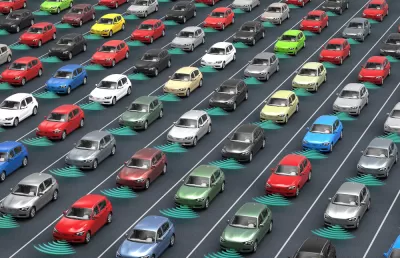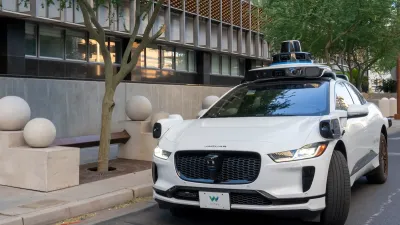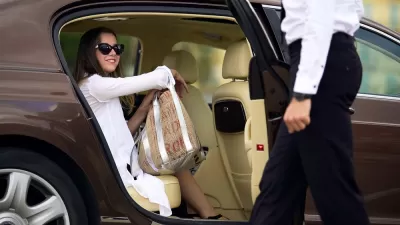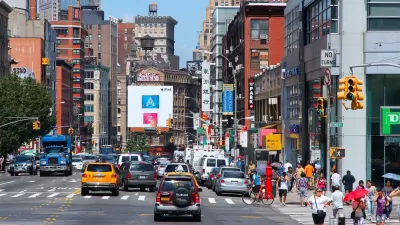It's not all free flowing commutes and world peace in an autonomous vehicle-filled future.

A new study published by the Union of Concerned Scientists points out the potential negative outcomes of self-driving car technology, and lists policies that could ensure benefits for more people.
The potential negative outcomes are pretty bad, however, including worsening congestion and increasing inequality.
Dan Robitzski shares news of the study in an article for futurism, and here's his summary of the potential negative outcomes of massive adoption of autonomous vehicle (AV) technology: "Ultimately, the research suggests that introducing autonomous vehicles to the area would increase traffic by 66 percent, and that the added congestion would likely benefit the wealthy and take opportunities away from low-income communities."
The report includes a number of recommendations that could help mitigate these potential negative outcomes, including pooling rides (potentially by fining single-passenger trips) and investing in public transit that can avoid the new congestion induced by AVs.
FULL STORY: Scientists Warn Self-Driving Cars Could Worsen Inequality

Planetizen Federal Action Tracker
A weekly monitor of how Trump’s orders and actions are impacting planners and planning in America.

Maui's Vacation Rental Debate Turns Ugly
Verbal attacks, misinformation campaigns and fistfights plague a high-stakes debate to convert thousands of vacation rentals into long-term housing.

Restaurant Patios Were a Pandemic Win — Why Were They so Hard to Keep?
Social distancing requirements and changes in travel patterns prompted cities to pilot new uses for street and sidewalk space. Then it got complicated.

In California Battle of Housing vs. Environment, Housing Just Won
A new state law significantly limits the power of CEQA, an environmental review law that served as a powerful tool for blocking new development.

Boulder Eliminates Parking Minimums Citywide
Officials estimate the cost of building a single underground parking space at up to $100,000.

Orange County, Florida Adopts Largest US “Sprawl Repair” Code
The ‘Orange Code’ seeks to rectify decades of sprawl-inducing, car-oriented development.
Urban Design for Planners 1: Software Tools
This six-course series explores essential urban design concepts using open source software and equips planners with the tools they need to participate fully in the urban design process.
Planning for Universal Design
Learn the tools for implementing Universal Design in planning regulations.
Heyer Gruel & Associates PA
JM Goldson LLC
Custer County Colorado
City of Camden Redevelopment Agency
City of Astoria
Transportation Research & Education Center (TREC) at Portland State University
Jefferson Parish Government
Camden Redevelopment Agency
City of Claremont





























